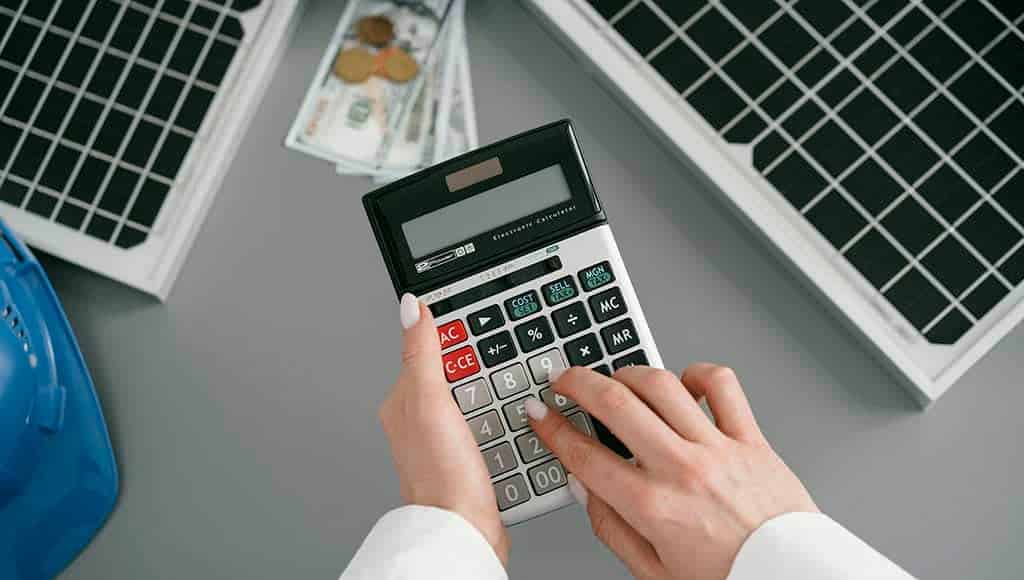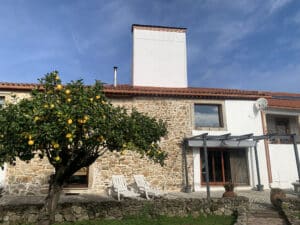Photovoltaic (PV) solar panels have become increasingly popular in Portugal to reduce energy costs and promote sustainability. Many homeowners invest in solar panels with the expectation of seeing a noticeable drop in their electricity bills. However, some are disappointed when the expected savings don’t materialize, leading to frustration and confusion.
Suppose you’ve installed solar panels but haven’t noticed a significant reduction in your electricity bill. In that case, several factors could explain this, along with solutions to help maximize your savings.
The first factor to consider is whether your photovoltaic system is correctly sized for your household’s energy consumption. The amount of electricity a PV system generates depends on its capacity (measured in kilowatts peak, or kWp), which should ideally be our energy needs.
For example, a typical household in Portugal consumes around 3,800 kWh per year or about 10.4 kWh per day. If your solar panel system is generating significantly less than this, your reliance on grid electricity will remain high, which could explain why your bill hasn’t decreased as expected.
Let’s do a simple calculation. In Portugal, a 3 kWp solar panel system can generate approximately 4,000-4,500 kWh per year, depending on the location and sun exposure. This is enough to cover the average household’s annual energy consumption if the system produces electricity when it’s needed. For example, if your system produces 12 kWh on a sunny day, but your home only uses 4 kWh during the day, you’ll still need to buy electricity from the grid in the evening when your energy usage increases, and the solar panels aren’t generating power.
This brings us to the second major factor: the timing of energy production versus consumption. Solar panels generate electricity during the day when the sun is out, but for many households, the peak energy consumption happens in the evening, once the sun has set. If most of your energy usage happens outside of daylight hours, most of the electricity produced by your panels is being exported back to the grid rather than being used to power your home. This means you are effectively selling your electricity to your energy provider and buying it back later, often at a higher price.
Let’s illustrate this with a specific example. Imagine your solar system produces 10 kWh of electricity during the day, but because you’re not at home and your appliances are off, you only consume 2 kWh of that energy. The remaining 8 kWh is exported to the grid. Under the current tariffs in Portugal, you might receive around 5 to 10 cents per kWh for the energy you export. So, for 8 kWh, you could earn 40 to 80 cents.
However, in the evening, when you’re home and using electricity for cooking, lighting, and heating, you’ll need to purchase electricity from the grid, which currently costs around 16 to 20 cents per kWh. If you consume 8 kWh in the evening, your cost will be between €1.20 and €1.60, meaning that even though you generated more than enough energy to meet your needs during the day, you’re still paying more than you’re earning from the energy you exported.
One of the most effective ways to solve this issue is by installing a battery storage system. A battery allows you to store excess electricity produced during the day and use it during the evening when your consumption is higher and the panels aren’t generating electricity. With a battery in place, you could store the surplus 8 kWh from the day and use it at night, effectively eliminating the need to buy electricity from the grid at peak prices. The upfront cost of a battery can be significant, but over time, the savings on your electricity bill can be substantial, especially for homes where energy consumption is higher outside daylight hours.
Another important factor to consider is the tariff plan you have with your electricity provider. In Portugal, the Smart Energy Guarantee (SEG) ensures that you get paid for the electricity you export to the grid, but the rates you receive for this energy are often lower than what you pay for consuming electricity from the grid. It’s important to review your energy contract and make sure you’re on a tariff that maximizes the benefits of having solar panels. Some energy providers offer special tariffs for solar panel owners, which may offer better rates for both buying and selling electricity.
A lesser-known issue that could also be affecting your bill is how your consumption is measured and billed. Many energy providers use estimated readings for electricity consumption, which might not accurately reflect the reduction in grid electricity usage after you install solar panels. This means that, even if you’re using less electricity from the grid, your bill might not show the full savings because the estimated consumption doesn’t take your solar production into account.
To solve this, it’s crucial to ensure that your meter is giving real-time readings, and it might be necessary to request that your provider adjusts the way your consumption is measured.
Lastly, technical problems with the installation could also explain why your solar panels aren’t delivering the expected savings. Solar panels need to be correctly oriented and positioned to maximize exposure to sunlight throughout the day. If your panels are partially shaded by trees or buildings, or if they weren’t installed at the optimal angle, their efficiency could be significantly reduced.
Similarly, faults in the inverter, which converts the direct current (DC) produced by the panels into alternating current (AC) for household use, can also limit the system’s performance. Regular maintenance and checks are essential to ensure your system is operating at its full potential.
In conclusion, if you’ve installed photovoltaic panels and haven’t seen a significant reduction in your electricity bill, there are several potential explanations. It may be due to mismatches between your system’s capacity and your household’s energy consumption, or because your energy use peaks at times when your panels aren’t producing electricity. Investing in battery storage, reviewing your tariff, and ensuring accurate billing and proper system installation can all help to maximize your savings. By addressing these issues, you should begin to see the difference in your electricity bill, and fully realize the financial and environmental benefits of solar energy.
By Isa Conceição
Isa Conceição is the CEO of Soren – Renewable Energy Solutions, based in Almancil. She assists individual customers and small businesses seeking renewable energy solutions across Portugal. +351 910 030 423 | info@soren.pt | www.soren.pt



















